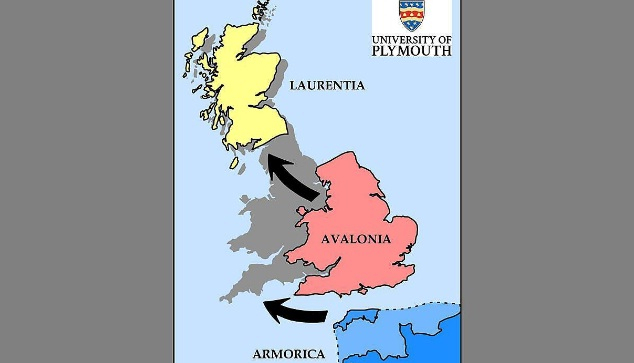
A new study report published in the journal 'Nature Communications' has revealed that modern-day Britain was formed due to the collision of not two, but three ancient continental masses.
Previously, scientists believed that the collision of continental land masses — Avalonia and Laurentia around 400-million-years ago caused the formation of the British mainland. But now, researchers at the University of Plymouth argue that there was a third land mass named Armorica, which is now known as France, was also involved in the collision that resulted in the formation of Great Britain.
During the study, researchers conducted an extensive study on the mineral properties unearthed from 22 sites in Devon and Cornwall in England. Researchers found that there is an abundance of tungsten and tin in the south-west region of England. It should be noted that these minerals found in abundance in regions of France like Brittany, and they are not that common in England except the south-west region.
Researchers also suggested that there is a clear geological boundary that separates Devon and Cornwall from the remaining parts of the United Kingdom.
"It has always been presumed that the border of Avalonia and Armorica was beneath what would seem to be the natural boundary of the English Channel. But our findings suggest that although there is no physical line on the surface, there is a clear geological boundary which separates Cornwall and south Devon from the rest of the UK," said Arjan Dijkstra, the lead author of the study in a recently issued statement.
As per Dijkstra, the connections between England and France are much stronger than previously believed and said, "We always knew that around 10,000 years ago you would have been able to walk from England to France. But our findings show that millions of years before that, the bonds between the two countries would have been even stronger. It explains the immense mineral wealth of South West England, which had previously been something of a mystery, and provides a fascinating new insight into the geological history of the UK."
The research team who conducted this study strongly believes that the abundance of tin and tungsten in Cornwall and Devon has been explained with this new theory of continental collision which involves Armorica.








